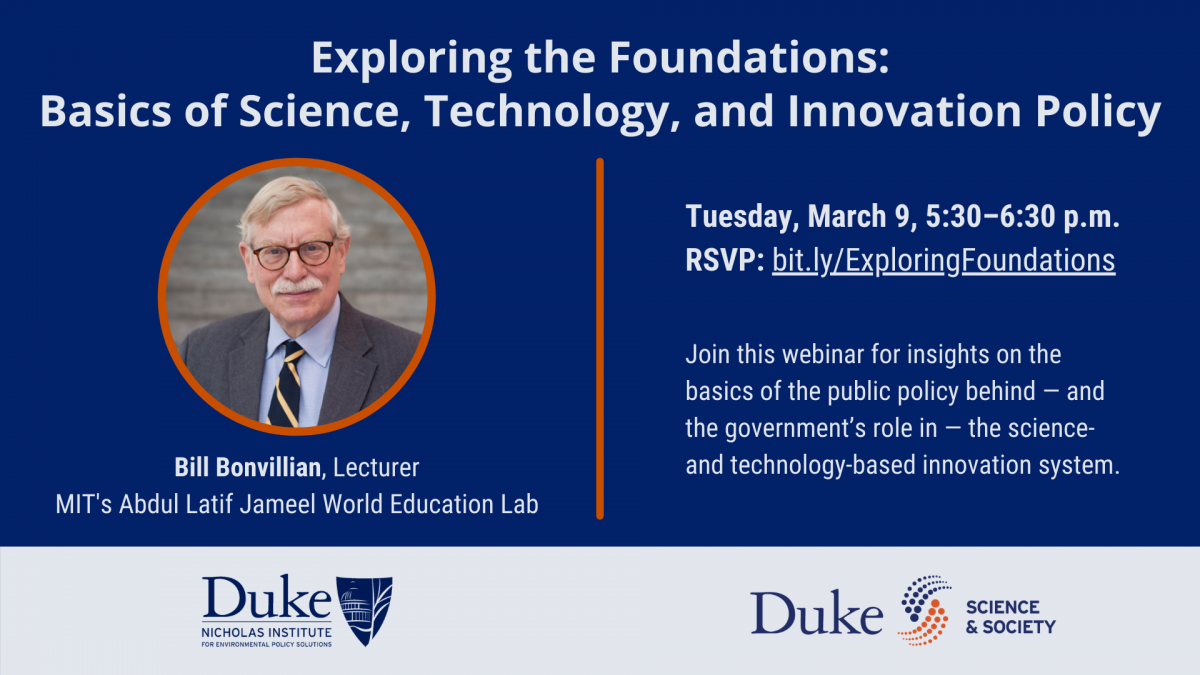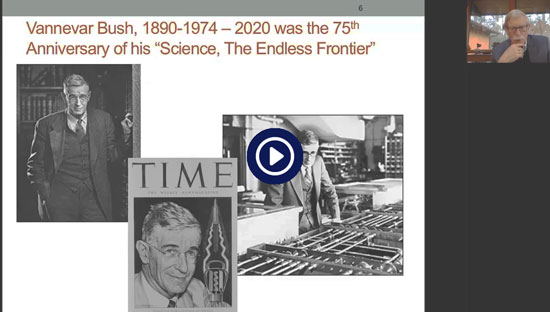About
Our future will be in significant part determined by public policy decisions by companies and government about science and technology, yet few know how this system works—it is truly a "black box" for most. Meanwhile, we increasingly understand that science- and technology-based innovation is deeply connected to society’s economic growth and its corresponding ability to generate societal wellbeing and to solve big societal challenges like climate change or the need for quality jobs. So the public importance of science is growing. In this talk, Bill Bonvillian will examine some of the basics of the public policy behind, and the government’s role in, the science- and technology-based innovation system.
This event is co-sponsored by Duke's Nicholas Institute for Environmental Policy Solutions and the Duke Initiative for Science & Society.
The webinar is part of the Duke Environmental Impacts Fellow Program, a professional development opportunity for Duke PhD students keen on making a high impact in their careers. This pilot program is funded by Duke University's Office of the Provost, Nicholas School of the Environment, Sanford School of Public Policy, Pratt School of Engineering, Trinity College of Arts & Science, Divinity School, and Nicholas Institute for Environmental Policy Solutions.


